- About
- Academics
- Admissions & Aid
- Life
- Research
- News & Events
Program at a Glance
EXPLORE LIFE, FROM THE BASIC TO THE COMPLEX
Department
The biology major program recognizes a particular responsibility to prepare students for careers in medicine, dentistry, and other health professions. It cooperates with other academic programs to provide a strong foundation for these professions.
Learn More
Bachelor of Science in Biology
Biology majors at Morehouse are logically oriented, scientifically literate students who become professionally and intellectually prepared through mentored research and laboratory experimentation to communicate a range of scientific issues.
Learn More
About Biology
-
Overview
Overview
The Academic Program in Biology seeks to educate students to think and communicate logically and effectively, and to assume responsibility for their continued education, whether formal or informal.
Considerable emphasis is placed on preparing students for graduate and professional work in various areas of biology. This is facilitated through formal courses, including laboratories and seminars in a broad range of subjects, that explore biological principles, concepts and processes. Because biology is an experimental science, the program seeks to provide opportunities for students to participate in course-based and mentored research during the academic year and summer.
The program recognizes a particular responsibility to prepare students for careers in medicine, dentistry and other health professions, and cooperates with other academic programs to provide a strong foundation for these professions. Part of that responsibility also extends to preparing students for careers in biomedical research.
After graduating, recent biology-major alumni have started careers as:
- Research scientists in the biological, biomedical, environmental, or public health sciences (typically after completing the M.S. or Ph.D degree in graduate school). Such careers may be in academia, industry, or government sectors.
- Healthcare professionals, after completing professional school (medical or dental school, physician assistant’s program, nursing, or physical therapy program).
- Teachers, after completing a graduate program in education.
- Policy experts or advocates, usually after completing a graduate program in an appropriate scientific discipline.
- Entrepreneurs
-
Earn the Major
Curriculum
Student learning outcomes:
- Students will have learned both the fundamental processes of biological systems and advanced knowledge of biology.
- Students will be able to design and conduct biologically meaningful experiments.
- Students will be able to use their knowledge of the interdisciplinary nature of biology to analyze biological problems.
- Students’ verbal and written communication skills will have improved, including scientific writing and professional public speaking.
- Students will be able to apply quantitative reasoning skills to biological problems.
- Students’ critical thinking and analytical reasoning skills will have improved.
- Students will be able to describe how knowledge of Biology is important in addressing and solving societal problems.
Department policies and/or General Education modifications:
• HBIO 111, 112 and 114 are the three core introductory courses required for all Biology Majors. Students may start with either HBIO 111 or HBIO 114 and either is a pre-requisite for HBIO 112.
• A grade of C or better is required for majors to satisfactorily complete all Biology core courses, cognate courses, laboratory courses, and Biology electives.
• Introductory core courses each have a co-requisite laboratory that must be taken simultaneously with the lecture course.
• Double-dipping between required and elective courses in the Major in Biology and other majors and minors is permitted without restriction.
• Advanced laboratory courses (HBIO 200-level and greater) must be taken concurrently with their associated lecture course.
• Not more than one Public Health Sciences (HPBH) course may be taken as a Biology elective.
• Students must complete the introductory core courses in Biology and their co-requisite laboratories prior to enrolling in upper-level (HBIO 200+) courses.
• Some advanced courses (200-level or greater) in Chemistry and Psychology at Morehouse may be accepted as Major in Biology electives with permission of the Chair of Biology.
• With prior approval of the Chair of Biology, as many as 2 biology elective courses may be taken at other institutions during the academic year or summer.
• Academic credit awarded for participation in a summer research program or internship will not apply toward the elective credit requirements in the Biology Major.
• General Education Biology courses (HBIO 101, 105, 106, 111, 112, 113, 114) taken off-campus (with permission of the Chair of Biology) must include an in-person laboratory component.
• Students planning to pursue advanced professional studies (medical or dental school) or a graduate degree program are strongly advised to consult with their academic advisor, the Office of Health Professions, the Office of Science Training, or directly with the programs they wish to pursue to ensure that appropriate courses are taken beyond the minimum requirements to complete the Major in Biology.Advanced Placements Credits
A student who has successfully completed an AP Biology course in high school and scored at least four (4) on the Advanced Placement Test in Biology administered by the College Board will, upon consultation with the Chair, be exempted from the first semester of our core introductory courses (Cell and Molecular Biology HBIO 111) and will receive four hours of credit.
Departmental Honors
A student majoring in biology may be recommended for departmental honors by completing the following requirements: eligibility for college honors, an average of B or above in the required biology courses and electives, and successful completion of a research project which is described in a senior thesis and defended before the department faculty in a seminar. In cases where the thesis adviser is at another institution, students must have a co-sponsor from the Morehouse Biology faculty. Application deadlines and detailed guidelines are available from the Department Chair. The requirements for honors in biology are subject to change as the faculty reviews these criteria.
Program of study requirements (57 credit hours):
Program Requirements (13 hours)
HBIO 111 Cell and Molecular Biology and HBIO 111L Laboratory
HBIO 112 Systems Biology and HBIO 112L Laboratory
HBIO 114 Populations, Community and Biosphere and HBIO 114L Laboratory
HBIO 425 Senior Seminar
Additional Biology Laboratories (3 courses, 3 hours)
HBIO 215L Molecular Genetics Laboratory
HBIO 306L Principles of Microbiology Laboratory
HBIO 315L Principles of Biochemistry Laboratory
HBIO 316L Principles of Physiology Laboratory
HBIO 317L Principles of Neurobiology Laboratory
HBIO 319L Plant Sciences Laboratory
HBIO 320L Ecology Laboratory
HBIO 351L Cell Biology Laboratory
HBIO 411L Cancer Biology Laboratory
HBIO 497L Environmental Studies Laboratory
Or other 200+ laboratory courses approved by the Chair of Biology
Cognate Courses (23 hours)
HCHE 111 Elementary Inorganic Chemistry
HCHE 111L Elementary Inorganic Chemistry Laboratory
HCHE 112 Elementary Inorganic Chemistry
HCHE 112L Elementary Inorganic Chemistry Laboratory
HCHE 231 Elementary Organic Chemistry
HCHE 231L Elementary Organic Chemistry Laboratory
HMAT 161 Calculus I
HMAT 162 Calculus II or HMAT 130 Basic Statistics
HPHY 151 + 151L General Physics I and Laboratory or HPHY 154 + 154L
Mechanics and Laboratory
Biology Electives (6 courses, 18 hours)
HBIO 215 Molecular Genetics
HBIO 260 Ethnobotany
HBIO 306 Principles of Microbiology
HBIO 315 Principles of Biochemistry
HBIO 316 Principles of Physiology
HBIO 317 Principles of Neurobiology
HBIO 318 Introduction to DNA Microarray Analysis
HBIO 319 Plant Sciences
HBIO 320 Ecology
HBIO 321-322 Special Topics in Biology
HBIO 350 Principles of Bioinformatics
HBIO 351 Cell Biology
HBIO 381-382 Biological Research
HBIO 391-393 Research Collaboration
HBIO 411 Cancer Biology
HBIO 427 Animal Histology
HBIO 451 Cellular Genetics
HBIO 461 Advanced Topics in Biochemistry
HBIO 471 Principles of Animal Development
HBIO 477 Invertebrate and Vertebrate Comparative Anatomy
HBIO 497 Environmental Studies
Or other 200+ courses approved by the Chair of Biology
Overview
The Academic Program in Biology seeks to educate students to think and communicate logically and effectively, and to assume responsibility for their continued education, whether formal or informal.
Considerable emphasis is placed on preparing students for graduate and professional work in various areas of biology. This is facilitated through formal courses, including laboratories and seminars in a broad range of subjects, that explore biological principles, concepts and processes. Because biology is an experimental science, the program seeks to provide opportunities for students to participate in course-based and mentored research during the academic year and summer.
The program recognizes a particular responsibility to prepare students for careers in medicine, dentistry and other health professions, and cooperates with other academic programs to provide a strong foundation for these professions. Part of that responsibility also extends to preparing students for careers in biomedical research.
After graduating, recent biology-major alumni have started careers as:
- Research scientists in the biological, biomedical, environmental, or public health sciences (typically after completing the M.S. or Ph.D degree in graduate school). Such careers may be in academia, industry, or government sectors.
- Healthcare professionals, after completing professional school (medical or dental school, physician assistant’s program, nursing, or physical therapy program).
- Teachers, after completing a graduate program in education.
- Policy experts or advocates, usually after completing a graduate program in an appropriate scientific discipline.
- Entrepreneurs
Curriculum
Student learning outcomes:
- Students will have learned both the fundamental processes of biological systems and advanced knowledge of biology.
- Students will be able to design and conduct biologically meaningful experiments.
- Students will be able to use their knowledge of the interdisciplinary nature of biology to analyze biological problems.
- Students’ verbal and written communication skills will have improved, including scientific writing and professional public speaking.
- Students will be able to apply quantitative reasoning skills to biological problems.
- Students’ critical thinking and analytical reasoning skills will have improved.
- Students will be able to describe how knowledge of Biology is important in addressing and solving societal problems.
Department policies and/or General Education modifications:
• HBIO 111, 112 and 114 are the three core introductory courses required for all Biology Majors. Students may start with either HBIO 111 or HBIO 114 and either is a pre-requisite for HBIO 112.
• A grade of C or better is required for majors to satisfactorily complete all Biology core courses, cognate courses, laboratory courses, and Biology electives.
• Introductory core courses each have a co-requisite laboratory that must be taken simultaneously with the lecture course.
• Double-dipping between required and elective courses in the Major in Biology and other majors and minors is permitted without restriction.
• Advanced laboratory courses (HBIO 200-level and greater) must be taken concurrently with their associated lecture course.
• Not more than one Public Health Sciences (HPBH) course may be taken as a Biology elective.
• Students must complete the introductory core courses in Biology and their co-requisite laboratories prior to enrolling in upper-level (HBIO 200+) courses.
• Some advanced courses (200-level or greater) in Chemistry and Psychology at Morehouse may be accepted as Major in Biology electives with permission of the Chair of Biology.
• With prior approval of the Chair of Biology, as many as 2 biology elective courses may be taken at other institutions during the academic year or summer.
• Academic credit awarded for participation in a summer research program or internship will not apply toward the elective credit requirements in the Biology Major.
• General Education Biology courses (HBIO 101, 105, 106, 111, 112, 113, 114) taken off-campus (with permission of the Chair of Biology) must include an in-person laboratory component.
• Students planning to pursue advanced professional studies (medical or dental school) or a graduate degree program are strongly advised to consult with their academic advisor, the Office of Health Professions, the Office of Science Training, or directly with the programs they wish to pursue to ensure that appropriate courses are taken beyond the minimum requirements to complete the Major in Biology.
Advanced Placements Credits
A student who has successfully completed an AP Biology course in high school and scored at least four (4) on the Advanced Placement Test in Biology administered by the College Board will, upon consultation with the Chair, be exempted from the first semester of our core introductory courses (Cell and Molecular Biology HBIO 111) and will receive four hours of credit.Departmental Honors
A student majoring in biology may be recommended for departmental honors by completing the following requirements: eligibility for college honors, an average of B or above in the required biology courses and electives, and successful completion of a research project which is described in a senior thesis and defended before the department faculty in a seminar. In cases where the thesis adviser is at another institution, students must have a co-sponsor from the Morehouse Biology faculty. Application deadlines and detailed guidelines are available from the Department Chair. The requirements for honors in biology are subject to change as the faculty reviews these criteria.Program of study requirements (57 credit hours):
Program Requirements (13 hours)
HBIO 111 Cell and Molecular Biology and HBIO 111L Laboratory
HBIO 112 Systems Biology and HBIO 112L Laboratory
HBIO 114 Populations, Community and Biosphere and HBIO 114L Laboratory
HBIO 425 Senior Seminar
Additional Biology Laboratories (3 courses, 3 hours)
HBIO 215L Molecular Genetics Laboratory
HBIO 306L Principles of Microbiology Laboratory
HBIO 315L Principles of Biochemistry Laboratory
HBIO 316L Principles of Physiology Laboratory
HBIO 317L Principles of Neurobiology Laboratory
HBIO 319L Plant Sciences Laboratory
HBIO 320L Ecology Laboratory
HBIO 351L Cell Biology Laboratory
HBIO 411L Cancer Biology Laboratory
HBIO 497L Environmental Studies Laboratory
Or other 200+ laboratory courses approved by the Chair of Biology
Cognate Courses (23 hours)
HCHE 111 Elementary Inorganic Chemistry
HCHE 111L Elementary Inorganic Chemistry Laboratory
HCHE 112 Elementary Inorganic Chemistry
HCHE 112L Elementary Inorganic Chemistry Laboratory
HCHE 231 Elementary Organic Chemistry
HCHE 231L Elementary Organic Chemistry Laboratory
HMAT 161 Calculus I
HMAT 162 Calculus II or HMAT 130 Basic Statistics
HPHY 151 + 151L General Physics I and Laboratory or HPHY 154 + 154L
Mechanics and Laboratory
Biology Electives (6 courses, 18 hours)
HBIO 215 Molecular Genetics
HBIO 260 Ethnobotany
HBIO 306 Principles of Microbiology
HBIO 315 Principles of Biochemistry
HBIO 316 Principles of Physiology
HBIO 317 Principles of Neurobiology
HBIO 318 Introduction to DNA Microarray Analysis
HBIO 319 Plant Sciences
HBIO 320 Ecology
HBIO 321-322 Special Topics in Biology
HBIO 350 Principles of Bioinformatics
HBIO 351 Cell Biology
HBIO 381-382 Biological Research
HBIO 391-393 Research Collaboration
HBIO 411 Cancer Biology
HBIO 427 Animal Histology
HBIO 451 Cellular Genetics
HBIO 461 Advanced Topics in Biochemistry
HBIO 471 Principles of Animal Development
HBIO 477 Invertebrate and Vertebrate Comparative Anatomy
HBIO 497 Environmental Studies
Or other 200+ courses approved by the Chair of Biology
Meet Our Faculty and Staff
Dr. Valerie Haftel, Department Chair
Mabel Swinney, Department Coordinator
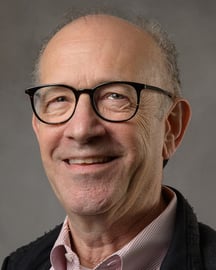
Lawrence S. Blumer
Professor
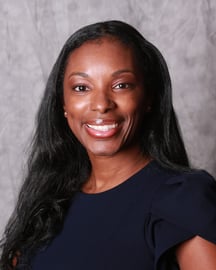
Dwann Davenport
Assistant Professor
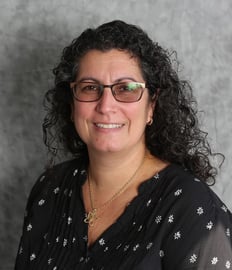
Valerie K. Haftel
Professor
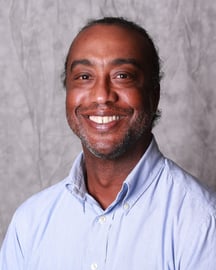
Jeffrey Handy
Assistant Professor
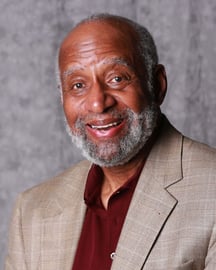
John K. Haynes
Professor
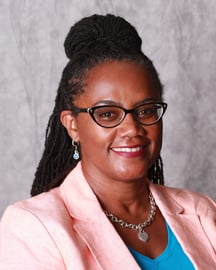
Triscia Hendrickson
Professor
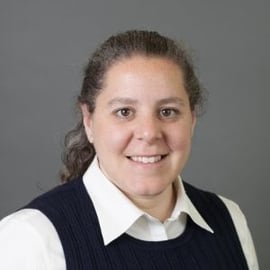
Alexandra Peister
Associate Professor
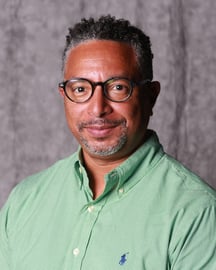
Wallace Sharif
Associate Professor NTT
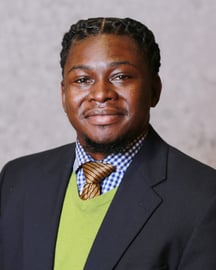
Ethell Vereen, Jr.
Assistant Professor

.jpg?width=800&name=biology-expo-1024x667%20(1).jpg)